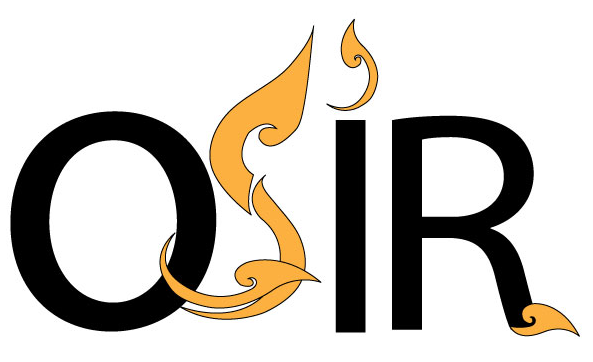Chuleeporn Jiraphongsa
Publication Ethics
The Outbreak, Surveillance, Investigation & Response (OSIR) Journal places great importance on research and publication ethics and considers this issue a priority when evaluating manuscripts for publication. The publication ethics of the journal are based on the guidelines of the Committee on Publication Ethics (COPE) and the recommendations of the International Committee of Medical Journal Editors (ICMJE) for the conduct, reporting, editing, and publication of scholarly work in medical journals.
Regarding human and animal rights, research involving human participants, human material, or human data must have been conducted in accordance with the Helsinki Declaration and approved by an appropriate ethics committee (if applicable). Similarly, research on animals requires Institutional Animal Care and Use Committees (IACUC) to review and approve the manuscript, and all manuscripts reporting such research must include a statement detailing this, including the name of the ethics committee and, if applicable, a reference number. If a study is exempt from requiring ethics approval, this should be noted in the manuscript (including the name of the ethics committee that granted the exemption). The Editor reserves the right to request additional information and documentation to support this, and to reject manuscripts that were not conducted within an appropriate ethical framework.
When submitting a manuscript to the OSIR journal, it is understood that all authors have read and agreed to its content and that the manuscript complies with the journal's policies.
Author(s)
Authors play a crucial role in maintaining the integrity of the scientific community, ensuring that the work published in the OSIR Journal is of the highest quality and meets all necessary ethical standards:
- Originality of Manuscript: The submitted manuscript must be original and not previously submitted or published in any peer-reviewed journal in any language. The manuscript should meet the highest academic standards and should comply with the stylistic and bibliographic requirements outlined in the OSIR Journal's submission guidelines.
- Authorship: The OSIR Journal follows the International Committee of Medical Journal Editors (ICMJE) guidelines for authorship. All authors listed in the manuscript should have made substantial contributions to the study, including conception, design, acquisition, analysis, or interpretation of data, and drafting or revising the manuscript. The contributions of all authors should be clearly defined.
- Exclusion of AI Technology as Authors: Authors should ensure that artificial intelligence technologies, such as ChatGPT, are not listed as authors, as they cannot be held accountable for the accuracy, integrity, and originality of the manuscript. Only individuals who have made significant intellectual contributions should be credited as authors.
- Plagiarism: Authors must ensure that their work is free from plagiarism. This includes avoiding the presentation of others' data, ideas, text, or theories as their own without proper citation and acknowledgment. Manuscripts found to have a plagiarism rate exceeding 20% during the review process will be immediately rejected, and the review process will be halted.
- Data Integrity: Authors are responsible for ensuring that their research data is accurately reported and based on valid evidence. All data presented in the manuscript must be authentic, reliable, and correctly interpreted. Manipulation or falsification of data is strictly prohibited. Authors must be able to provide access to raw data upon request to support the study's findings, in accordance with the journal's data-sharing policy.
- Conflicts of Interest: Authors must disclose any potential conflicts of interest at the time of manuscript submission. Conflicts of interest may include financial interests, such as employment, consultancy, stock ownership, honoraria, paid expert testimony, patent applications, grants, or any other funding that could influence the interpretation of the research. Authors should also disclose any personal, professional, or intellectual biases that might affect the objectivity of the manuscript. Failure to disclose conflicts of interest may lead to rejection of the manuscript or retraction if published.
- Acknowledgments: All relevant contributions to the manuscript, including funding and technical assistance, should be appropriately acknowledged in the manuscript. Individuals or organizations that contributed to the study but did not meet the criteria for authorship should be acknowledged in the "Acknowledgments" section. Additionally, authors must ensure that all prior work referenced in the manuscript is properly cited.
- Ethical Misconduct: The OSIR Journal has a zero-tolerance policy for unethical practices, including data fabrication, falsification, citation manipulation, and multiple, duplicate, or simultaneous submissions of the same manuscript to multiple journals. Such actions will result in immediate manuscript rejection, withdrawal of the manuscript from the review process, and the prohibition of future submissions from the authors involved.
- Consent for Publication: Each co-author of the manuscript must provide explicit consent for publication. Additionally, if the manuscript includes details, images, or videos of specific individuals, the authors must obtain written informed consent for publication from the individuals (or their legal guardians) prior to submission. The manuscript must include a statement confirming that written informed consent has been obtained. If the authors use figures, tables, or other materials from previously published works, they must seek permission from the original copyright holders to use these materials. The responsibility for any legal issues arising from copyright infringement lies solely with the authors.
Reviewers
Reviewers play a vital role in ensuring the integrity of the publication process and must adhere to the following principles regarding intellectual property:
- Confidentiality of Manuscripts: Reviewers must treat manuscripts and all associated materials as confidential. The content of the manuscript, including any intellectual property it contains, should not be shared or discussed with others unless explicitly authorized by the journal or publisher. This confidentiality must be maintained until the manuscript is published.
- Unbiased Review: The review should be based solely on the quality of the manuscript, which should be assessed primarily on scientific rationale and judgment, free from bias or personal opinions. The decision to accept or reject a manuscript should be made without regard to the nationality, religious or political beliefs, gender, or other characteristics of the authors, the manuscript's origins, or commercial interests.
- Professional and Objective Feedback: Reviewers must possess the necessary skills and expertise in the field related to the article under review. Comments should be professional, objective, and constructive, aimed at helping the authors improve the manuscript. Reviewers may use resources such as the OSIR reviewer checklist to guide their feedback.
- Respect for Intellectual Property: Reviewers must not use any unpublished information, data, or ideas from the manuscript for their own personal research or gain. They must also refrain from claiming ownership of any content in the manuscript, whether in part or in full. If reviewers identify that any parts of the article under review are similar to or an exact duplicate of another publication, they should promptly notify the editor.
- Disclosure of Competing Interests: Reviewers are required to disclose any potential competing or conflicting interests that may influence their assessment of the manuscript. These conflicts could be personal, intellectual, professional, political, or religious. If a reviewer suspects they know the identity of the author(s), they should notify the editor to assess the potential for competing or conflicting interests.
- Integrity of the Peer-Review Process: Reviewers must respect the confidentiality and integrity of the peer-review process. The information contained in the manuscript should not be used for personal gain, and reviewers should ensure that they do not derive any benefit from the reviewed papers.
Editors
Editors play a critical role in maintaining the scientific integrity and quality of the OSIR Journal. In accordance with ethical publishing standards, editors must adhere to the following principles:
- Maintaining High Standards: Editors are responsible for upholding the high-quality standards of the OSIR Journal and ensuring its ongoing improvement. They must work towards fostering academic excellence, fairness, and transparency in the review and publication process.
- Evaluating Manuscripts Based on Merit: Editors must evaluate submitted manuscripts based on scientific importance, originality, validity, interest to the journal's readership, and relevance to the journal’s scope. Manuscript decisions should not be influenced by superficial factors such as language or formatting issues, and should be free from bias related to the authors' race, gender, sexual orientation, religious beliefs, ethnic origin, citizenship, or political philosophy.
- Conflicts of Interest: Editors must avoid any vested interest or conflicts of interest regarding the authors or reviewers of submitted manuscripts. They should not derive any personal or commercial benefit from published articles. Any potential conflicts of interest must be disclosed and managed appropriately to maintain impartiality.
- Handling Plagiarism: plagiarized content exceeding 20% is detected, the article review process will be immediately suspended. The editor must promptly contact the author(s) for clarification and take appropriate action in line with the journal's policies, which may include retraction or other corrective measures.
- Confidentiality: Editors must respect the confidentiality of the peer-review process and the manuscript’s content. Manuscript information should not be disclosed to third parties or used for personal gain until the article has been officially published.
- Integrity of Peer-Review Process: Editors should not alter or change the review results provided by the reviewers. The editorial process must remain transparent, objective, and aligned with the journal’s standards.
- Transparency in Handling Editor-authored Articles: Editors are allowed to submit articles for publication in the OSIR Journal; however, to ensure transparency and objectivity in the peer-review process, editors must not be involved in the review process of their own articles. Articles authored by editors should undergo the same rigorous peer-review process as any other submission to the journal.
- Ethical Oversight and Post-publication Corrections: Editors must ensure that the journal adheres to ethical oversight, including monitoring and taking corrective actions when necessary. This includes addressing any ethical concerns raised post-publication, such as retractions, corrections, or clarifications, in a transparent and timely manner. Editors must ensure that any errors or ethical issues identified after publication are corrected promptly and that the integrity of the journal is maintained.








